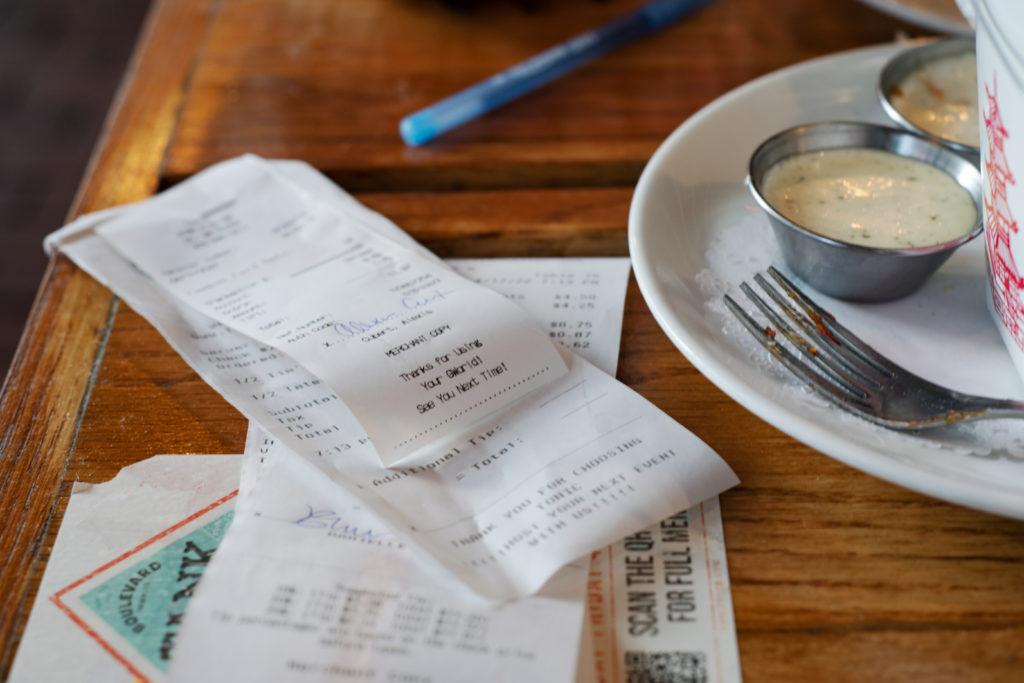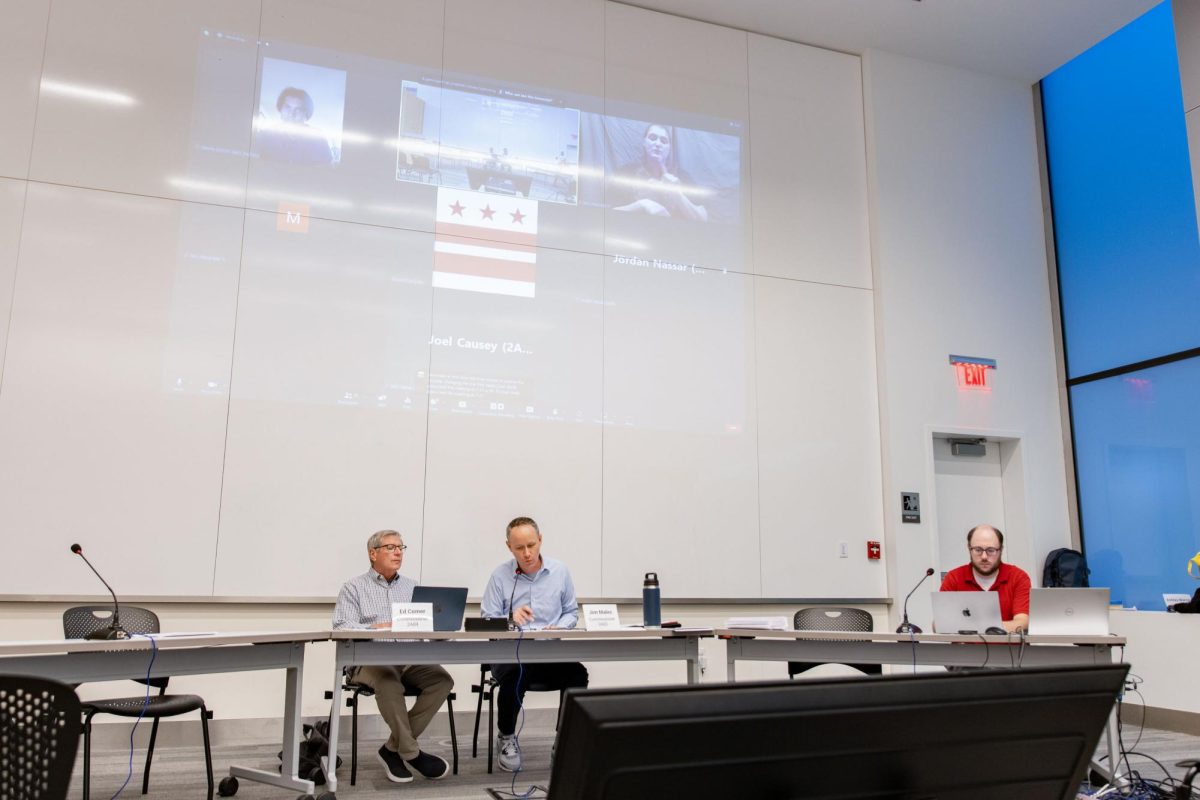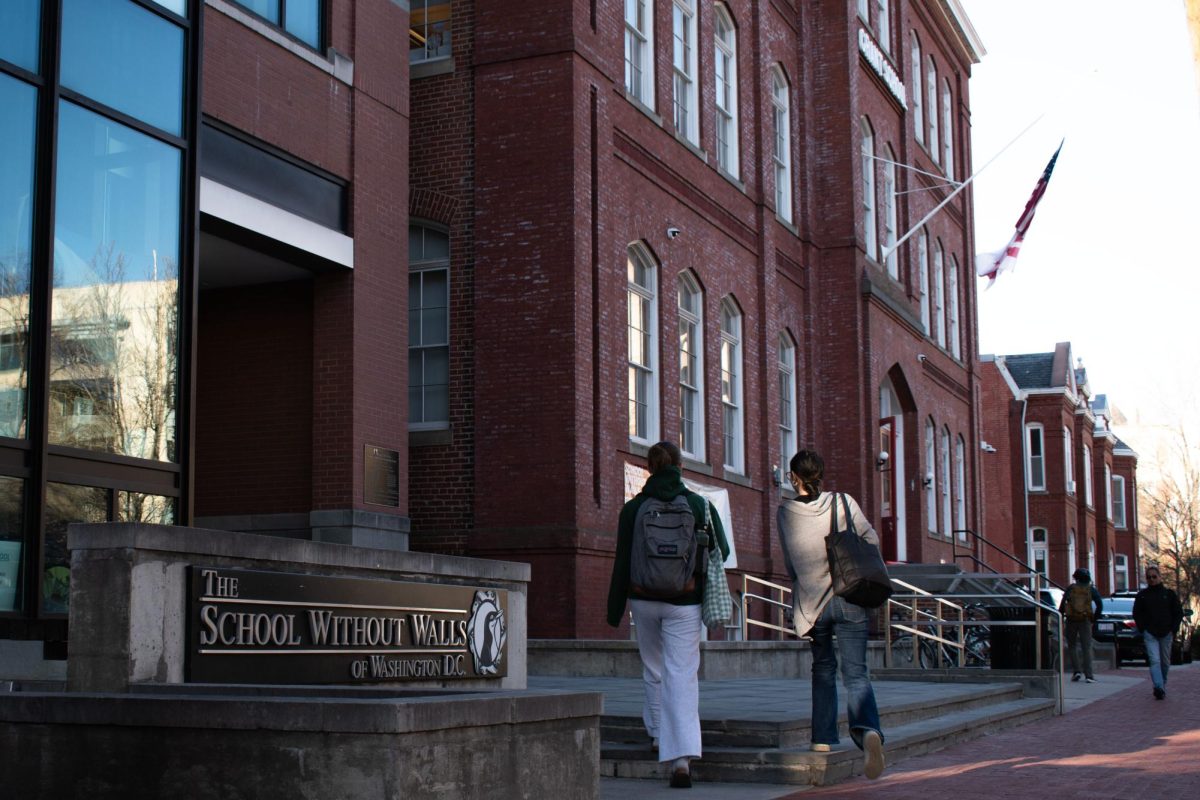D.C. residents will vote on a proposed initiative to raise the District’s tipped minimum wage from $5.05 to $15.20 per hour before the end of the calendar year.
Initiative 82, which the D.C. Board of Elections added to the November ballot earlier this month, proposes a gradual increase to the city’s tipped minimum wage for service industry jobs like servers and bartenders during the next five years until 2027. Activists supporting Initiative 82 said the proposal is a “game-changer” for student employees working in the service industry because raised wages will provide more consistent and predictable paychecks for employees who depend on unreliable tips.
The D.C. Council overturned similar legislation in 2018 when it repealed Initiative 77, a proposal passed by just more than half of the District’s voters in June 2018.
Ryan O’Leary – the chair of the D.C. Committee to Build A Better Restaurant Industry, the organization backing the initiative – who proposed Initiative 82 to the D.C. Council, said Council members have “thwarted” ongoing efforts to raise the tipped minimum wage.
The board of elections requires ballot initiatives to receive support from 5 percent of voters citywide and 5 percent from five of the District’s eight wards.
O’Leary said the committee planned to get the initiative on the June primary ballot, but the bill was delayed after the Council redistricted wards 7 and 8 in the beginning of January. He said the board of elections directed the committee to restart the process of gathering signatures in those wards after the redistricting and directed them to start from scratch to ensure the bill’s support was certifiable.
“It needs to get on the ballot as soon as possible, and it needs to become law immediately afterwards,” O’Leary said. “I’m just very thankful that this time we have the votes on our side and on the Council, and I hope that we have the votes of the chairman and the mayor come the general election.”
Voters in Ward 2, which includes Foggy Bottom, voted to approve Initiative 77 by a thin margin in the June 2018 election despite opposition from Jack Evans, the former Ward 2 D.C. Council member.
O’Leary said Initiative 82 will aid college students working in the service industry because employees will receive higher hourly rates on top of the tips they receive from customers, creating a more consistent paycheck for servers who rely on tips during busy days. He said this financial assurance would allow employees to budget and save to accommodate the expensive cost of living in the District instead of living shift-to-shift.
“If I was getting a paycheck on top of leaving every night with tips in college, I would be in such a better place now than I am currently,” O’Leary said. “I would have had more money, I would have been able to save money in college, so I wasn’t just starting completely new.”
Zoe Carver, a freshman majoring in international affairs and peace studies who works at Tatte in West End, said her earnings have been unpredictable while relying on tips, which vary depending on the time of her shift. She said because more customers come in during her morning shifts, a later shift means she’ll earn $5 to $10 less per hour.
“Working later shifts versus earlier shifts, you get paid less,” Carver said. “Because it’s a bakery, everyone comes in during the morning. Based on how you get randomly scheduled, that depends how much money you’re making.”
Carver said the proposed wage increase will relieve financial pressure for student workers with a steady paycheck. She said the low wages and lack of tips on slow days in combination with long hours made it a “stressful” environment for her.
“It’s a lot of work and not a lot of appreciation at all,” Carver said. “Just rude customers, long hours. I often am scheduled five-hour shifts, which isn’t that long, but they do it on purpose. Because if it’s five hours, you don’t get a break the entire time.”
Ian Cook, a junior majoring in international affairs and anthropology, said he made a $5 hourly wage without tips when he worked as a server at Pinstripes, an Italian restaurant in Georgetown with bowling and bocce ball that many college students visit at night.
Cook said his managers would sometimes assign him day shifts where he would receive little to no tips because of a lack of customers, while he would receive upwards of $300 in tips on busier night shifts. He said the hourly wage he received without tips didn’t feel like fair compensation for the amount of time he was working during the day.
“You’re still doing work, you’re doing side work, rolling silverware, making sure everything’s stocked,” Cook said. “That work alone is definitely worth more than the $5 an hour that restaurants pay.”
Cook said the combination of slow shifts and “tip-out,” where servers distribute their tips to the rest of the service staff at the end of every shift, occasionally left him paying out of pocket to compensate the other employees if he didn’t receive enough tips. He said sometimes his hourly wage paycheck would be little to nothing, even on nights with generous earnings from tips.
“Sometimes as a result, you’d walk away with no money,” Cook said. “And sometimes, even if you walk away with a lot of money, your paycheck ends up being $0. So you can’t really rely on that.”







